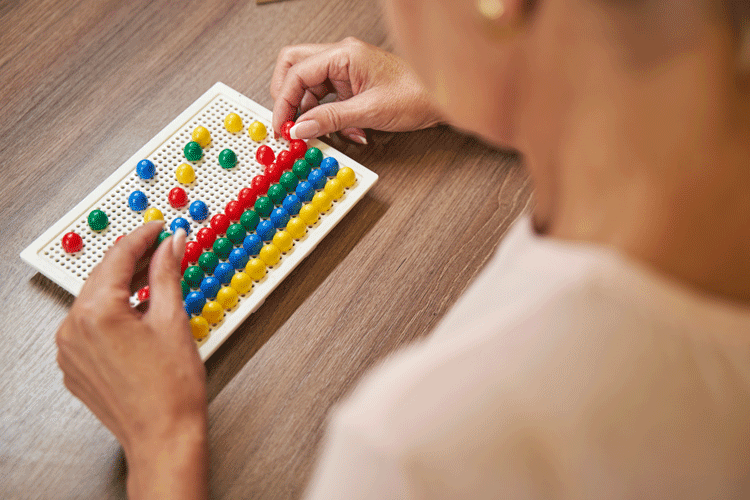Author: Topcoach
When it comes to mental health, soft skills can be a gamechanger, writes Melaney Doyle of IOSH’s Staffordshire Branch committee
Soft skills have the power to improve our personal relationships and mental health. They are all about human interaction, connection and communication. They are the personal attributes that enable someone to interact effectively and harmoniously with other people in the workplace.
One way to explain it is that hard skills are things like qualifications and occupational requirements. Soft skills include leadership, self-awareness and being aware of your influence on others, communication skills, emotional intelligence, being a good team player, working under pressure, good decision-making and staying flexible.
Mental health issues can cause people to feel isolated. Using soft skills can enable them to talk and feel supported and have a positive effect on their thoughts and feelings. In this modern age the ability to connect on a human level is critical, and we can all make a difference to our workplaces and colleagues by taking time to develop our soft skills and thinking about how we can use them to support one another.
Connie Sung, an associate professor in the Office of Rehabilitation and Disability Studies in MSU’s Department of Counseling, Educational Psychology and Special Education, who has studied the issue, says that while schools are aware of this need the effort has to be well structured and deliberate.
“Teaching these students appropriate soft skills and ways to navigate the social demands in the workplace and school are crucial and actually an important key to success,” Sung says.
She notes that her research has shown that 90% of job losses, for instance, by students on the autism spectrum (ASD) occur because they lack fundamental social and emotional learning skills, such as collaboration or communications. Often she says, schools focus on getting these students to relate to classmates or teachers, but not generally function in the broader world.
She says her research has shown that young people fail in jobs – or even in some school settings – because of “the lack of soft skills rather than hard skills”.
Amanda Bennett, a developmental behavior pediatrician at Children’s Hospital of Philadelphia, described it this way.
“All children need to be able to understand facial expressions and recognize social cues in other people, look them in the eye, and be able to follow classroom rules. For kids with special needs, however, these lessons may not come easily,” she told MetroKids.
“When interacting socially comes naturally for people, we don’t pay much attention to it,” she says. “But your ability to regulate an interaction with another person — having that back and forth conversation in a successful way; reading someone’s
social cues and recognizing whether they agree with what you’re saying or doing; being able to recognize when someone is being friendly or a bully — these are all really important in childhood and in life.”
Sung and her colleagues at MSU have developed a program called The Assistive Soft Skills and Employment Training program, or ASSET which has been used primarily by students in college and high school and entering the work force, but increasingly is gaining interest among K-12 schools.
Sung’s research proves the training helps considerably. Her research shows that with eight weeks of ASSET training, young adults with ASD showed significant improvements in social cognition, social function and social confidence.
Speaking of AT for Social Skills and Communication we should mention that People with mental issues are very different from one another, but all share difficulties with social skills and social communication. For some, the challenges are relatively subtle; for others, even basic human interaction can be a struggle. Fortunately, there is a vast range of assistive technologies to help with these issues—some of which are very high tech.
Low-Tech
At the basic, low-tech level, an industry has arisen around teaching children with autism (and adults with more severe challenges) to prepare for and manage new or complex social situations. Among the most popular are:
- Social stories: These short, simple, visual stories were first developed by Carol Gray and are used to prepare people with mental issues to think and behave appropriately in any situation. There are pre-existing social stories for common situations such as getting a hair cut or going to the dentist; therapists and parents can also write and illustrate customized social stories for unique situations such as starting a new school.
- Social skills cards and games: Many specialized companies have created cards and games to help build social skills. There are social skills games similar to Chutes and Ladders created to reinforce empathy; Uno cards focused on feelings; and dice games that are intended to reinforce social communication skills.
Mid-Tech
Mid-level technology for social skills focuses largely on video modeling and apps (though many video games intended for preschoolers focus on social-emotional concepts).
Video modeling is a tried and true technique for teaching social skills, and companies like Model Me Kids are dedicated to creating videos to teach everything from polite greetings to joining a conversation to asking someone out on a date.
Apps are more interactive and can allow learners to select areas of interest and actually practice their skills and receive feedback. The Social Express is a social skills tool for middle school learners with autism and related disorders.
High-Tech
Social skills teaching at the high end is truly techie—and can be extremely expensive. That’s because the goal is to create interactive artificial intelligence and robots that can literally take the place of human beings.
These tools are being used to help both children and adults build social skills in a risk-free, highly-interactive, and very intriguing way—and preliminary research is encouraging. A few of the more advanced projects along these lines include:
- Kiwi, a “socially assistive robot” created by a team of researchers from the University of Southern California that teaches disabled people both how to do math and socialize.
- QTrobot, created by a company at the University of Luxembourg, which is intended to “increase people’s willingness to interact with human therapists, and decrease discomfort during therapy sessions.”
- Human-shaped robots created at MIT to help develop social skills and empathy.



